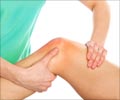Prevention and self-care of arthritis are keys to bringing down the healthcare burden posed by the disease during a pandemic

TOP INSIGHT
Prevention and self-care of arthritis are keys to bringing down the healthcare burden posed by the disease during the pandemic. Thus physical activity along with healthy dietary choices can ease arthritic pain, improve function and mood, and delay the onset of disability.
Many people tend to ignore the symptoms and there is often a delay due to lack of awareness. However timely medication and preventive care like balanced diet and exercise can help prevent the incidence and aggravation of arthritis further.
“With prevalence higher than that of diabetes or cancer, arthritis has emerged as one of the widely spreading diseases in India, currently affecting nearly 200 million or about 15% of the population. Preventive measures and proper self-care are important for the country to bring down the burden from the disease, and to make a big difference to patients especially during the on-going pandemic, when getting in-person consultation or medical intervention is proving to be difficult,” says Dr. Chirag Thonse, Consultant Orthopedic Surgeon, Vikram Hospital.
Reduce the Arthritis Burden with Simple Care
It is stated that overweight women are almost four times more likely to get knee osteoarthritis than women with normal body weight. Thus maintaining a healthy weight and engaging in physical activity helps in reducing the risk of developing arthritis, especially osteoarthritis.
Food plays a vital role in preventing various diseases. Various nutrients in a healthy diet may help boost joint health and reduce inflammation. Fruits and vegetables that provide antioxidants, low-fat dairy foods that contain calcium and vitamin D, and healthy oils such as extra virgin olive oil may also help in delaying the onset or progression of arthritis
Keeping blood sugar under control is also important, as high blood sugar can stiffen the tissue that supports joints and make them more sensitive to stress. Emphasizing the need for avoiding injuries, it is stated that an injured joint is more likely to develop arthritis than one that is never injured.
The author thereby mandates the need for the public in making healthy lifestyle choices such as not smoking, avoiding stress, getting adequate sleep, and reducing alcohol intake can improve your well-being by keeping you high on emotional wellness, self-management, and motivation.
Source-Medindia
 MEDINDIA
MEDINDIA



 Email
Email










